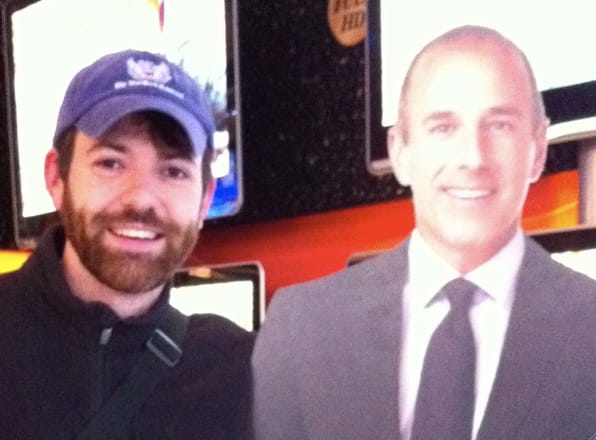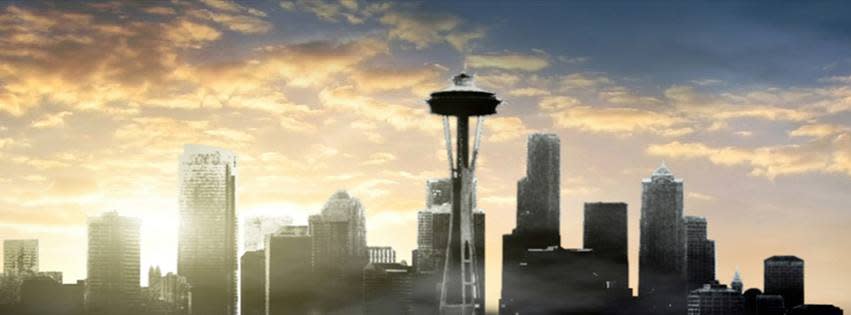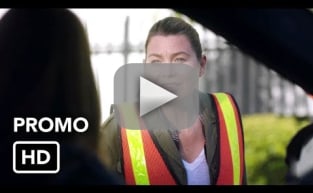Isaiah Washington Speaks His Mind, Laments His Firing to Newsweek
 Steve Marsi
at
.
Steve Marsi
at
.
It's a sunny afternoon in Los Angeles, and Isaiah Washington is on the set of the independent film The Least of These, Newsweek reports.
Isaiah Washington plays a priest in the movie, and he's dressed in full-on black on black with a sliver of white at his collar.
He greets his guests with a gentle smile and an extended hand. Sitting in his small trailer filled with the scent of myrrh incense, he seems at peace.
Isaiah Washington can't stop himself from doing what he's been doing a lot lately: explaining away a situation that already cost him a beloved job - and could ultimately cost him much more.
Last fall, Washington, by his own admission, picked a fight with Patrick Dempsey, one his co-stars on the ABC hospital drama Grey's Anatomy.
Fighting with a co-worker is never smart, but Washington took it further by using an offensive term to refer to a gay cast member, T.R. Knight, during the altercation.
"Patrick and I had a philosophical disagreement that got out of hand and that I regret a great deal," Isaiah Washington says.
"I said a lot of negative things that were never reported, but there was one word that caught everyone's attention, particularly someone who wasn't even in the room with us. It was a fight between two men that shouldn't have happened. But someone heard the booming voice of a black man and got really scared and that was the beginning of the end for me. I see that now, but I didn't then."
But that's not the end of the tale.
When the cast was celebrating at the Golden Globes in January, a reporter asked about the altercation, and about Washington's anti-gay comment. Washington took the mic to defend himself â€" and used the slur again. Once may have been a slip of the tongue, but twice? The public got angry.
Earlier this month, ABC did not offer Washington a new contract for the show's fourth season, which begins filming this summer.
Washington has expressed bitterness about the situation, especially since he did everything the network asked to atone for his mistakes.
"I apologized and showed my remorse for what I said and for the pain I caused anyone," says Washington.
"If a black man can't get forgiveness in this country, when so many other people like Robert Downey Jr. and the governor of California get second and third chances ... I think that says a lot about race and where we stand."
ABC asked Washington to go to rehab to deal with his alleged homophobia, which he did; he says he even paid half the fee.
"I thought them sending me meant they actually wanted me to succeed and come out on the other end," he says. Yet Washington now says that his counseling - or "homophobia reprogramming" - wasn't exactly what it seemed.
"There is no rehab for homophobia â€" that was just some crap being put out by the network," he says.
"I went into an executive counseling program which many people in this industry know about and go to. They knew what the program was but chose to call it what they wanted to fit an agenda. More importantly, I volunteered for it because I wanted to understand my fight with Patrick and how it got out of hand like that. I wanted to know what I could do to avoid it happening again."
ABC declined to comment.
Shortly after the second incident in January, cast member T.R. Knight appeared on The Ellen Degeneres Show and said he felt he had no choice but to admit he was gay after Washington's fight on set.
Washington has said that Knight fueled the flames of the situation to advance his own career. No cast member has spoken to the media since Washington's firing.
Washington is no stranger to anger.
He has somewhat of a reputation in the film industry for lashing out at others while working and for also speaking his mind with no fear of consequences. A few years back, he had a confrontation with Tracey Edmonds, an African-American producer of the Showtime program "Soul Food."
Washington chalks up those previous incidents to an artist's temperament. "I have a mind of my own and I do speak it when I feel it's right," he says. "In this business that's considered being difficult and hard to deal with. A lot of actors face this and it does hurt you with work and in the future jobs. It's a price you pay though for doing the projects you want and making things turn out the way you want. I have an opinion and that should be valued by my employer."
Washington's use of the "F" word seems surprising, given that he portrayed a gay character in Spike Lee's 1996 Get On the Bus â€" and wrote an essay condemning homophobia in the black community a few years back.
One thing that's also been lost with so much focus on Washington is the sad reality of homophobia in the black community. From rap music to Eddie Murphy jokes, insensitivity to homosexuals seems to be a mainstay of African-American culture.
"Growing up in the South, I wasn't exposed to as many different lifestyles and personalities as I could have been. That's always a problem, because the more you're exposed, clearly the more you know and understand," Washington says.
"My mother had several cross-dressing friends who she sometimes referred to with names I'd never use, but she didn't know any better. There was no hate, just lack of awareness."
Washington has spent untold sums of money tracing his roots back to the small nation of Sierra Leone, where he is currently funding the building of a five-room school for village children. That sort of work might seem to contrast with his harsh comments. But if Washington is conflicted, he doesn't see it that way.
"People who know me know what's really in my heart," said Washington. "That is what's hurt me so much with all this. I was doing what I'm doing in Africa for years â€" before Angelina and Bono. But I've worked at homeless shelters for years and given money to make sure people knew they didn't have to be hungry or the street. I have shared my blessings, but all that changed when this happened and it's truly heartbreaking for me."
The actor, who is traveling to Ghana along with Jamie Foxx, Chris Tucker and Forest Whitaker to recognize the end of slavery there 200 years ago next week, also feels that race played a part in his public flogging and eventual firing.
"Well, it didn't help me on the set that I was a black man who wasn't a mush-mouth Negro walking around with his head in his hands all the time. I didn't speak like I'd just left the plantation and that can be a problem for people sometime," he says.
"I had a person in human resources tell me after this thing played out that 'some people' were afraid of me around the studio. I asked her why, because I'm a 6-foot-1, black man with dark skin and who doesn't go around saying ‘Yessah, massa sir' and ‘No sir, massa' to everyone? It's nuts when your presence alone can just scare people, and that made me a prime candidate to take the heat in a dysfunctional family."
In conclusion, does Isaiah Washington have any regrets now that a chapter of his life is now closed?
"My mistake was believing that I would get the support from my network and all of my cast mates across the board. My mistake was believing I could correct a wrong with honesty and sincerity. My mistake was thinking black people get second chances," he says. "I was wrong on all fronts.
Steve Marsi is the Managing Editor of TV Fanatic. Follow him on Google+ or email him here.
















